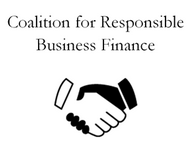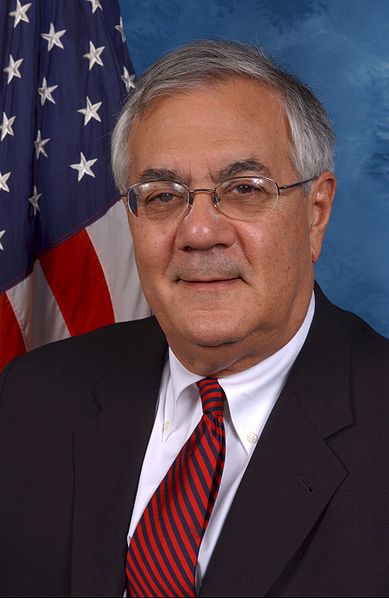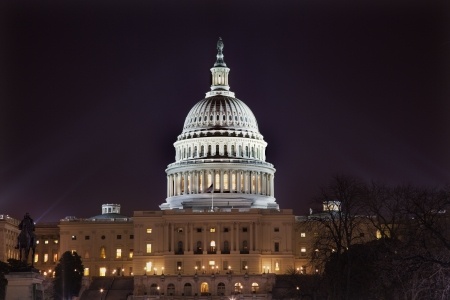Politics
Bernie Sanders Poses Bad Lending Question
December 27, 2015Two loans: one with collateral, the other without any. All else being the same, which one do you think would have the higher interest rate?
Given his tweet, Socialist (Democrat) candidate Bernie Sanders might not understand the question.
You have families out there paying 6, 8, 10 percent on student debt but you can refinance your homes at 3 percent. What sense is that?
— Bernie Sanders (@SenSanders) December 26, 2015
The twitterverse was quick to pounce on him for it:
@SenSanders I like you but you have to understand collateralized debt
— Greg Wissinger (@gwiss) December 26, 2015
@SenSanders
A bank can repossess a house. They can't repossess your brain if you quit paying student loans. Though, you make me wonder.
— Smittie (@smittie61984) December 26, 2015
@SenSanders Collateralized vs non collateralized loan. But you knew that already.
— enargins (Neil) (@enargins) December 26, 2015
@SenSanders it makes perfect sense. A 'home' is collateral which the bank can take possession of in case of default. m/t @KurtSchlichter
— All-American Male (@chrisbraly) December 26, 2015
@SenSanders astonishing how you can run president and not understand this basic understanding of collateral.
— Wittorical (@Wittorical) December 26, 2015
@SenSanders I'm generally on your side, but mortgages are secured debt whereas student loans are unsecured and don't always increase income.
— Don Edwards (@DMEdwards) December 26, 2015
@SenSanders wow, big display of stupidity here. The house has resale value. Can we sell people now if they don't pay?
— Ms. Parker (@CaseyParksIt) December 26, 2015
To be fair, student loans might be unsecured debt but they can’t be discharged in bankruptcy. There’s also ways for debt collectors to garnish a paycheck to pay them back. That’s entirely dependent on the borrower generating income though and likely means a substantially longer repayment period. In a famous op-ed by Lee Siegel in the NY Times titled, Why I Defaulted on My Student Loans however, it is apparently possible to just avoid the debt altogether (and apparently feel okay about it).
With stories like that it’s easy to understand why a loan secured by a home would cost less than a loan secured by someone’s willingness and ability to pay. And in the case of Bernie Sanders, a candidate who believes college should be free for everyone, it’s tough to say if his question was really just rhetoric meant to stir up his base or a serious one in which he really doesn’t understand how the underwriting of loans work.
Either way, many people are worried:
.@SenSanders doesn't understand why having collateral would account for a lower interest rate. And people want to make him president?
— Caleb Cassel (@CalebCassel) December 27, 2015
A Student Cash Advance?
October 27, 2015 Some interesting legislation was introduced last Tuesday by Senator Marco Rubio. The bill entitled “Investing in Student Success Act of 2015” would allow individuals to enter into Income Share Agreements that bear some of the characteristics of merchant cash advances. The bill defines an Income Share Agreement as,
Some interesting legislation was introduced last Tuesday by Senator Marco Rubio. The bill entitled “Investing in Student Success Act of 2015” would allow individuals to enter into Income Share Agreements that bear some of the characteristics of merchant cash advances. The bill defines an Income Share Agreement as,
[A]n agreement between an individual and any other person under which the individual commits to pay a specified percentage of the individual’s future income…in exchange for payments to or on behalf of such individual for postsecondary education, workforce development, or other purposes.
Sound familiar?
The bill goes on to state other aspects of a Income Share Agreement: “the agreement is not a debt instrument, and…the amount the individual will be required to pay under the agreement…may be more or less than the amount provided to the individual; and…will vary in proportion to the individual’s future income…” That last part differs from merchant cash advances in that there is no cap on the total amount an individual could be required to pay pursuant to an Income Share Agreement.
There are, however, a number of restrictions contained in the bill. The total percentage of income a person may be required to pay under an agreement—the split—may not exceed 15%. If a person’s income dips below $15,000 in any year, that person would not be required to pay any portion of their income. Also, the agreement may not exceed a term of 30 years, though the agreement may be extended for a term equal to the number of years the person was not required to pay because their income did not exceed $15,000.
Many states have enacted bans on income assignment agreements that would seem to prohibit the type of agreement proposed by the legislation. To address these laws, the bill contains a preemption provision: “Any income share agreement that complies with the requirements of [the bill] shall be a valid, binding, and enforceable contract notwithstanding any State law limiting or otherwise regulating assignments of future wages or other income.”
Additionally, because there is potential that a funder could receive an amount from an individual in a time period that would translate to a rate that exceeds state usury laws (as some merchant cash advances do, depending on the business’ performance) the bill also provides for preemption of state usury laws: “Income share agreements shall not be subject to State usury laws.”
So will Student Cash Advances be the next big thing in educational finance? Maybe, maybe not. For now, the bill has been referred to the Senate Finance Committee for further review.
You can read the full text of the bill here.
Chairman of House Financial Services Committee Requests Information from CFPB on Fair Lending Enforcement Actions, Requests Interview with Director of Fair Lending Office
October 18, 2015 Earlier this month, the Chairman of the House Financial Services Committee, Rep. Jeb Hensarling (R., Texas), sent a letter to the CFPB requesting information related to the Bureau’s recent investigations in to alleged fair lending law violations by auto lenders. This information may be helpful in understanding how the Bureau conducts fair lending focused exams and investigations. The Bureau recently announced plans to conduct its first small business lending focused exams within the next year.
Earlier this month, the Chairman of the House Financial Services Committee, Rep. Jeb Hensarling (R., Texas), sent a letter to the CFPB requesting information related to the Bureau’s recent investigations in to alleged fair lending law violations by auto lenders. This information may be helpful in understanding how the Bureau conducts fair lending focused exams and investigations. The Bureau recently announced plans to conduct its first small business lending focused exams within the next year.
Chairman Hensarling’s letter was co-signed by Rep. Sean Duffy (R., Wis.) and requests emails and other records that document how the Bureau built its recent cases against Ally Financial, American Honda Finance Corp and Fifth Third Bancorp. In each of these cases the CFPB alleged that the companies pricing policies resulted in minorities being charged more than white borrowers. In the three actions, the lenders did not admit or deny wrongdoing.
Chairman Hensarling’s letter also asks if the Bureau will make the director of the CFPB’s Office of Fair Lending and Equal Opportunity, Patrice Ficklin, available for a transcribed interview. An interview may provide lawmakers additional insight in to the Bureau’s efforts to address allegedly discriminatory pricing policies.
Ms. Ficklin recently spoke at the ABA’s Consumer Financial Services Institute where she explained that she expects the Bureau’s upcoming small business lending focused exams to provide the CFPB with useful information about small business loan underwriting criteria. Ms. Ficklin said that this information will assist the Bureau as it begins its work on the small business lending data collection regulations required by Section 1071 of Dodd-Frank.
Chairman Hensarling’s letter requested a response on Ms. Ficklin’s availability by Oct. 13 and the other requested documents by Oct. 20.
Coalition for Responsible Business Finance Submitted RFI on Behalf of Both Funders and Small Businesses
October 1, 2015 If you haven’t heard of the Coalition for Responsible Business Finance (not to be confused with the Responsible Business Lending Coalition), I recommend paying attention to it.
If you haven’t heard of the Coalition for Responsible Business Finance (not to be confused with the Responsible Business Lending Coalition), I recommend paying attention to it.
“The CRBF is a group of businesses and service providers that advocate for the value of alternative financing opportunities for small businesses,” they said in their response to the Treasury RFI. “We created the coalition to help educate Congress, Treasury, and other federal departments and agencies on how technology and innovation are providing small businesses access to capital that is necessary for growth.” Simply put, this coalition allows lenders, funders, and small businesses to have a unified voice to educate policymakers.
And yes, merchant cash advance companies are welcome, though representation is very diverse.
“Small business owners value choice and speed when looking at alternative finance and lending options,” the CRBF says in their response. “Any federal approach needs to balance new regulatory requirements with the impact on the alternative finance and lending sector and on the sector’s small business customers.”
The overall message in the submission is that regulators need not feel shy about opening a dialogue with those most likely to be affected by any change in policy.
For those reasons, CRBF recommends that Treasury create an alternative finance and lending interagency working group that will meet on a quarterly basis. We suggest that twice a year the working group meet as a group comprised solely of governmental personnel, with officials from SEC, SBA, FTC, Federal Reserve, OCC, and other relevant agencies. And, we suggest that twice a year the working group meet with business leaders from across the alternative finance and business lending spectrum including representatives from lead generators, aggregators, merchant cash advance professionals, peer-to-peer lenders, risk analytics services, direct lenders, marketplace lenders, and others. Meeting with different groups of businesses throughout the life span of an interagency working group will allow Treasury to keep up with a rapidly evolving business sector and will help ensure that any federal approach is sensitive to its impact on the sector and on its small business customers.
CRBF is committed to educate federal authorities on how alternative lending and finance benefits small business and the economy. We would certainly help Treasury establish any working group that serves the same purpose.
As I am currently an advisory board member of this coalition, I encourage you to consider the organization’s mission and purpose by visiting the website at http://www.responsiblefinance.com. If you’d like to learn more or consider support for it, email me at sean@debanked.com.
Dodd-Frank and More Paperwork Make Lending Harder
September 19, 2015 It’s not just alternative lenders that have concerns about Dodd-Frank, Section 1071 and the CFPB. Several community bankers recently testified in front of The House Committee on Small Business Subcommittee on Economic Growth, Tax and Capital Access to explain just how detrimental regulations have been to their lending operations.
It’s not just alternative lenders that have concerns about Dodd-Frank, Section 1071 and the CFPB. Several community bankers recently testified in front of The House Committee on Small Business Subcommittee on Economic Growth, Tax and Capital Access to explain just how detrimental regulations have been to their lending operations.
While the discussion encompassed all types of lending including consumer mortgages, B. Doyle Mitchell Jr, the CEO of Industrial Bank said that, “Dodd-Frank was intended for maybe 50 to 100 institutions. It was not intended for mainstream institutions, minority banks around the country.” Mitchell was speaking on behalf of the Independent Community Bankers of America (ICBA).
While repeatedly making the case about how important community banks were to local communities, he explained that Dodd-Frank had not helped them achieve their goals. “It has only increased our costs,” he testified.
Mitchell also expressed a feeling of perpetual anxiety over the loans they make, worrying that a regulator will not like them.
Dixies FCU CEO Scott Eagerton, who was there speaking on behalf of the National Association of Federal Credit Unions (NAFCU) said, “I really feel like we’re getting away from helping people and making sure that we make the loans that Washington agrees with and I think that needs to change.”
While alternative lenders were not on the agenda, the subject of government mandated transparency and its intent to help make things easier for borrowers is both timely and relevant. Referencing some of the new disclosures required in loan documents by Dodd-Frank and/or the CFPB, Congressman Trent Kelly asked if all the added pages to loan agreements make it easier for their customers to understand.
“Do they understand what they’re signing?” he asked.
Mitchell responded that they do not. “It is not any more clear,” he answered. “In fact it is even more cumbersome for them now.”
Regulators should pay special attention to this especially in light of a Federal Reserve study that came to the same conclusion. In Alternative lending: through the eyes of “Mom & Pop” Small-Business Owners, small business owners were asked if they understood financing terms offered by typical online lenders. The feedback was overwhelmingly positive that they did. But when asked a trick question about annual percentage rates, most got confused. While some advocacy groups interpreted this to mean that small business owners are confused by online lenders, it actually offers pretty compelling evidence to the contrary. A future standard of government mandated transparency as it relates to annual percentage rates would only serve to make it harder for small businesses to understand contracts, not easier.
 Both Eagerton and Mitchell made the case that increased compliance costs undermined the ability of community banks to grow the economy. “You cannot expect a trillion dollar institution to focus on hundred thousand dollar loans,” Mitchell said. And Subcommittee Chairman Tom Rice said, “the burdens created by Dodd-Frank are causing many small financial institutions to merge with larger entities or shut their doors completely, resulting in far fewer options where there were already not many options to choose from.”
Both Eagerton and Mitchell made the case that increased compliance costs undermined the ability of community banks to grow the economy. “You cannot expect a trillion dollar institution to focus on hundred thousand dollar loans,” Mitchell said. And Subcommittee Chairman Tom Rice said, “the burdens created by Dodd-Frank are causing many small financial institutions to merge with larger entities or shut their doors completely, resulting in far fewer options where there were already not many options to choose from.”
Eagerton argued that,”lawmakers and regulators readily agree that credit unions did not participate in the reckless activities that led to the financial crisis, so they shouldn’t be caught in the crosshairs of regulations aimed at those entities that did. Unfortunately, that has not been the case thus far. Accordingly, finding ways to cut-down on burdensome and unnecessary regulatory compliance costs is a chief priority of NAFCU members.”
But Congressman Donald Payne, Jr wondered why the ICBA was objecting to Section 1071 of Dodd-Frank, the part that grants the CFPB authority to collect certain pieces of data from financial institutions. Regulation B of Section 1071, for those that aren’t aware, was intended to study gender, racial and ethnic discrimination in small business lending.
Payne likened the law to The Home Mortgage Disclosure Act (HMDA), pronounced HUM-DUH, in which raw data is disclosed to the public but no penalties are specifically imposed if the data leans one way or another.
Mitchell responded to that by saying HMDA was a good example of something that was already very burdensome and another reason why Section 1071 was a bad idea. “While there is a clear need to outlaw discrimination at any level, I don’t think [this law is] necessary for community institutions,” he said. He pointed out that his bank could suffer reputational damage in the community by disclosing the gender and racial statistics of their business loans to the public at large.
While he did not expand on what he meant by reputational risk, one could fill in the blank that he meant the context that such data would lack. For example, if 75% of Hispanic-owned businesses were declined for business loans while only 25% of African-American-owned businesses were declined for business loans, one might infer from that raw data that there is potential discrimination taking place. Since small business loans are less FICO driven than consumer lending and focused more on the story of the business and the projected financial future, it is impossible to infer anything from raw data as it relates to discrimination.
“Simply put, Dodd-Frank needs to be streamlined,” said Marshall Lux, Cambridge, MA, John F. Kennedy School of Government, Harvard University.
And “the problem with Dodd-Frank,” Mitchell voiced, “is you cannot outlaw and you cannot regulate a corporation’s motivation to drive profit at all costs so while it had a lot of great intentions in over a thousand pages it has not helped us serve our customers any better.”
You can watch the full hearing below:
What Debit Card Interchange Reform?!
August 1, 2013 After years of debating over the law to cap debit card interchange fees and its eventual enactment, a federal court has struck it down. The 21 cent cap is gone but not because it was deemed unfair to banks but because the court thinks the cap should be even lower.
After years of debating over the law to cap debit card interchange fees and its eventual enactment, a federal court has struck it down. The 21 cent cap is gone but not because it was deemed unfair to banks but because the court thinks the cap should be even lower.
I wrote about the law several times over the last couple years. In the beginning, it was unclear as to what a debit card fee cap really meant, as I myself even explained it incorrectly the first time or two. The majority of folks believed the cap applied to the end user, the merchant, which helped to encourage small businesses,journalists, and even consumers to rally around it.
But when the law actually went into place, not much really changed because it didn’t have much to do with small businesses at all. The debit card reform law capped the amount of interchange fees that an acquiring bank pays a card issuing bank. The merchant wasn’t even involved although the acquirer can pass their new savings on to the merchant, but they don’t have to.
Many acquirers did pass some of the savings on but merchants went and did the opposite of what they promised. Their call to have their swipe fees lowered initially was so that they could lower their retail prices and and pass the savings on to consumers. Consumers believed this logic and supported small businesses to get this law implemented. A study by the Electronic Payments Coalition however, found that 67% of small businesses kept their prices the same or raised them.
There was clearly a lot of misinformation around this law and now it’s been struck down.
Two big misconceptions:
merchants will pay a maximum 21 cent debit swipe fee: Wrong
small businesses will turn their debit card fee savings into lower prices for consumers: wrong

My previous articles about debit card reform:
- The Debit Interchange Fee Battle Continues 2/7/12
- Law to Reduce Debit Card Fees to Retailers has Opposite Effect 12/12/11
- Where’s the Debit Discount? 12/11/11
- Don’t Make Us Pay is Back at it Again 10/21/11
- Revenge for the Durbin Amendment 10/3/11
- Don’t Make Us Pay Goes Quiet 7/11/11
- 15,000 Exempt From the Debit Card Interchange Fee Standards 7/14/11
- And the Misinformation Continues 7/12/11
- Blackjack! 21 Cent Debit Card Interchange Fee Plus 5 Basis Points 6/30/11
- Debit Card Feed Reform to be Finalized June 29 6/28/11
- Save My Debit Card Video Finalists 5/9/11
- Debit Card Reform is Gaining Steam in Canada 4/18/11
- Interchange Regulation and Reduction 4/16/11
- Wells Fargo, Chase, SunTrust Cancel Debit Rewards Program 3/28/11
- https://debanked.com/2011/08/6497526-the-merchant-processing-resource-is-not-hiring/ 3/23/11
- A Few Good Senators Try to Stop the Madness 3/17/11
- Say Goodbye to Debit Cards 3/11/11
- Congressman Steve Israel Replies to Us 2/22/11
- Debit Card Costs May Be Put on the Consumer 2/18/11
- Electronic Payments Industry Changing Forever 12/17/10


 Frank, who was the key author of the Dodd-Frank Wall Street Reform and Consumer Protection Act that was signed into law in 2010, was a longtime champion of consumer financial protections. But he sings a different tune when it’s all about business. Many people may not realize that he opposed the Durbin Amendment of the Dodd-Frank Act, the addition that placed caps and restrictions on debit card interchange fees. Federal restrictions on how much a business can charge another business? Not his thing…
Frank, who was the key author of the Dodd-Frank Wall Street Reform and Consumer Protection Act that was signed into law in 2010, was a longtime champion of consumer financial protections. But he sings a different tune when it’s all about business. Many people may not realize that he opposed the Durbin Amendment of the Dodd-Frank Act, the addition that placed caps and restrictions on debit card interchange fees. Federal restrictions on how much a business can charge another business? Not his thing… I’d like to think that the term, merchant cash advance, is mainstream enough that a congressman would know what it was. I have no idea if that’s the case though. What I do know is that Renaud Laplanche, the CEO of Lending Club gave testimony before the Committee on Small Business of the United States House of Representatives on December 5, 2013.
I’d like to think that the term, merchant cash advance, is mainstream enough that a congressman would know what it was. I have no idea if that’s the case though. What I do know is that Renaud Laplanche, the CEO of Lending Club gave testimony before the Committee on Small Business of the United States House of Representatives on December 5, 2013.


























